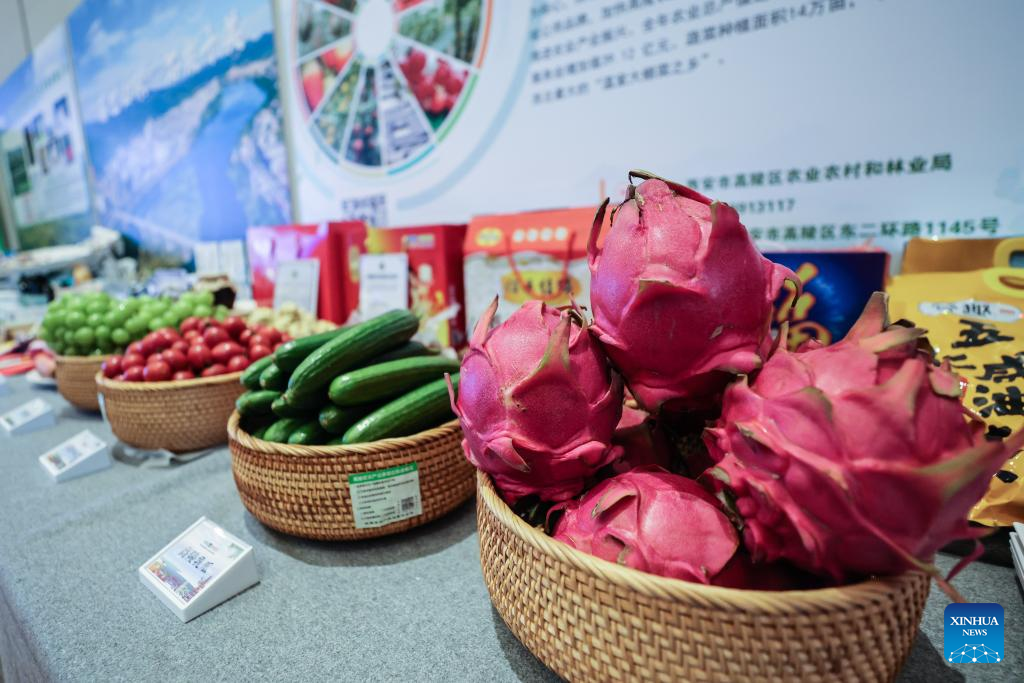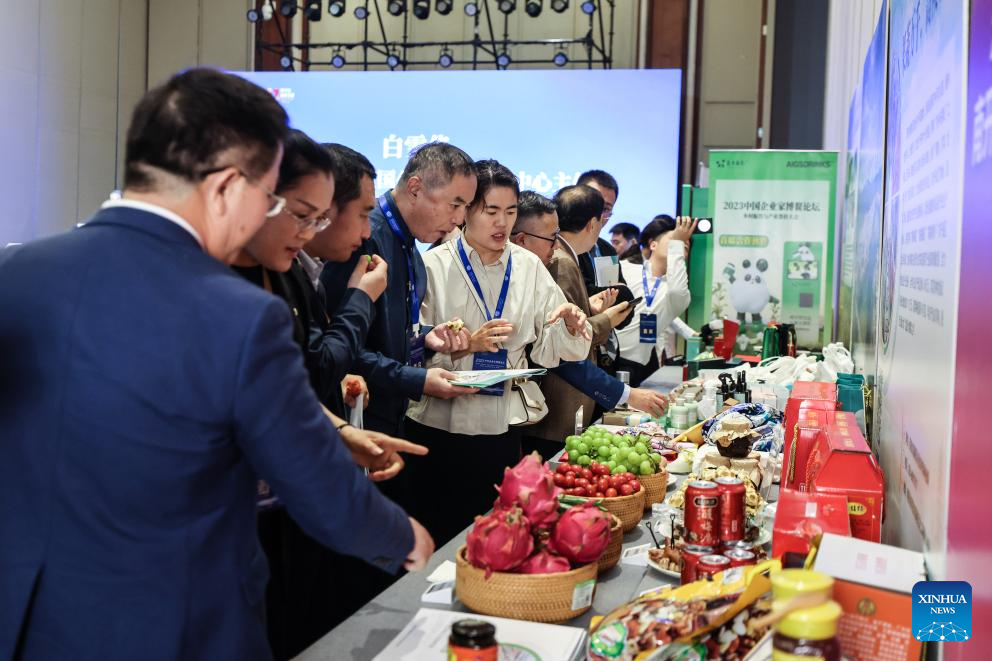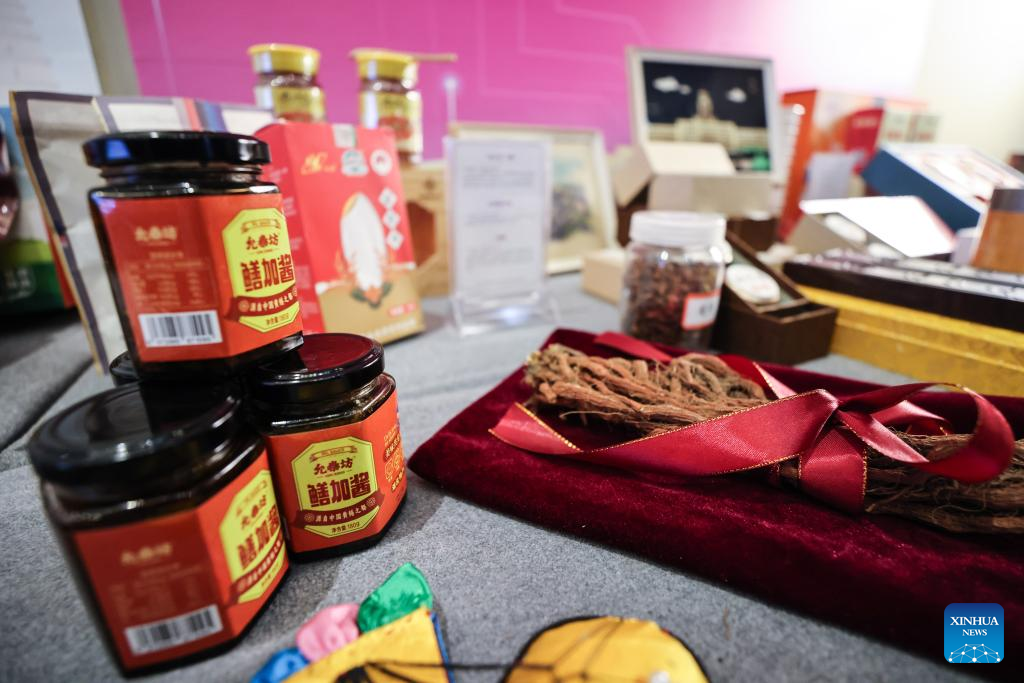Local characteristic industries are booming in China's rural revitalization
At the start of the harvesting season, the air in the village of Yongchu is filled with the aroma of rice wine.
In Baisha Li Autonomous County, south China's Hainan Province, the ripening of its distinctive Shanlan rice marks the season for ethnic villagers to welcome relatives and friends to taste homegrown rice and drink the wine made from it.
The upland rice varieties cultivated by the ethnic Li people have a rich history, spanning up to 1,000 years, with cultivation mainly for subsistence for much of this period. However, these traditional crops have gained added value in recent years, evolving into grain commodities popular with urbanites.
This transformation is enabling locals to earn extra money. In the village of Yongchu alone, 184 rural families currently rake in a combined annual income of more than 2 million yuan (280,300 U.S. dollars) from Shanlan rice and related products.
The specialties of this village are just an epitome of a local specialty industry thriving amid China's rural revitalization drive.
At the ongoing 2023 Boao Forum for Entrepreneurs in Boao, a coastal town in Hainan, local specialties from across the country have gained much attention, highlighting how products once stuck deep in mountains or the rural hinterland have found their way to a broader market.
One of the specialties on show at the event is Jin'er, or Golden Ear in English, an edible fungus rich in fat, protein and trace elements such as phosphorus, calcium and potassium.
Grown in the county of Xinhe, north China's Hebei Province, this product has been in short supply in the Beijing-Tianjin-Hebei region due to its widespread popularity in recent years.
This year, the county cooperated with a Beijing-based agricultural company to build a modern agricultural industry demonstration base spanning around 667 hectares, focusing on robust development of the edible fungi industry.
"We have transitioned Xinhe Jin'er planting to an intelligent factory cultivation model," said Chen Long, deputy head of the Hebei Brand Building Research Institute. "Compared to wild species, artificial cultivation offers speed, high yields, and a relatively simple planting process."
Another such example is the broader market developing a taste for coarse grains from the city of Xinzhou, north China's Shanxi Province.
Known as the capital of China's coarse grains, Xinzhou is home to 15 categories of coarse grains featuring more than 600 varieties. The annual sales income generated by coarse grain products there is 4.4 billion yuan, which amounts to 40 percent of the total sales income generated by the city's agricultural products.
Liu Zhuoliang, deputy secretary of the Communist Party of China Xinzhou Municipal Committee, said that Xinzhou has 270 market players specializing in coarse grain products, and over 1,550 cooperatives involved in this industry, while more than 550,000 families there are engaged in it.
One of the reasons for this passion for local specialties is the close link between food and traditional Chinese medicine, said Wang Fengzhong, head of the Institute of Food Science and Technology under the Chinese Academy of Agricultural Sciences.
About half of China's 832 former national-level poverty-stricken counties have developed industries related to food with medicinal properties, playing an irreplaceable role in promoting the revitalization of rural industries, Wang said.
The Ministry of Agriculture and Rural Affairs has launched a program to cultivate a number of high-quality regional public brands with distinct characteristics.
Local authorities said they plan to enhance brand-building for their local specialties to further tap the potential of the market.
"Currently, regional brands of fungi products all over the country are mostly focused on Mu'er (Wood Ear) and morel, and there is a vacancy in the Golden Ear category," said Chen Long, while adding that "Xinhe County is committed to building a strong regional brand."

This photo shows local specialties showcased at the 2023 Boao Forum for Entrepreneurs in Boao, south China's Hainan Province.

Guests learn about local specialties at the 2023 Boao Forum for Entrepreneurs in Boao, south China's Hainan Province.

This photo shows local specialties showcased at the 2023 Boao Forum for Entrepreneurs in Boao, south China's Hainan Province.
Xinhua
Other posts by Xinhua
Contact author
blog comments powered by